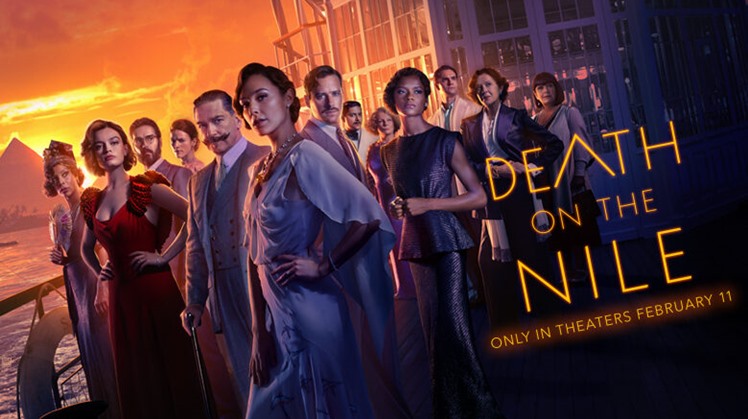This article is originally published on: dailymail.co.uk/
Life on the Nile: The real star of the new Agatha Christie movie is ancient Egypt - so hop aboard for a front-row seat
Pashminas are raining down around us like a fusillade of flapping missiles, hurled on to our riverboat by determined hawkers hell-bent on making a sale.
‘Hey, lady. Lookie, lookie, throw us money,’ yells one of them, standing on the lock wall below, as he launches yet another cotton projectile up to me on the top deck.
You have to admire the ingenuity and tenacity of these ‘pirates of the Nile’, who don’t miss any chance to market their wares — especially after the past two years, when this legendary waterway was virtually empty of tourist boats.
Now, they are slowly returning (a record 362 riverboats are set to cruise the Nile this year), but only a few are currently sailing, making this an ideal time to explore Egypt’s treasures without the crowds.
On our round-trip voyage from Luxor to Aswan, I’m struck by how few tourists there are, especially at the Valley of the Kings.
Before the pandemic, 1.5 million visitors poured into this craggy valley annually, with long, snaking queues for the most famous tomb belonging to boy king Tutankhamun. On our visit, we simply walked straight in.
But Egypt’s fortunes look set to change after yesterday’s release of the film Death On The Nile, directed by Kenneth Branagh and based on Agatha Christie’s thriller. It is one of three key events in 2022 that the country hopes will help to recapture the glory days of 2010, when nearly 15 million tourists flocked here.
The centenary of the discovery of Tutankhamun’s tomb by archaeologist Howard Carter in November, and the delayed opening of the $1 billion Grand Egyptian Museum near the Pyramids, are also expected to raise Egypt’s profile.
Combining Cairo’s hotspots with the temples and tombs of Upper Egypt on a Nile cruise makes it easy to roll the country’s top attractions into one holiday.
Many river cruise companies offer short stays in the capital tagged on to sailings between Luxor and Aswan.
When I join Uniworld’s opulent SS Sphinx for the 250-mile round trip between the two cities, nearly everyone onboard is American. Britons, it seems, have yet to return here, as I don’t come across any compatriots during my stay.
Yet, despite the shadow of Covid, the ambience is relaxed, with everyone fully vaccinated, though we do have to wear masks around the boat.
The 84-passenger SS Sphinx makes a lavish base for the week, with hand-carved wooden ceilings and plush furnishings. Best of all is the top deck, with its mosaic-tiled pool and daybeds from which to soak up the views. But this is a cruise rooted in Egypt’s past glories, as we explore a never-ending procession of antiquities.
In the ancient Egyptian capital of Thebes, known today as Luxor, we step back in time to an era of pharaohs and tomb raiders. Our guide leads us across the 250-acre expanse of Karnak Temple and the incredible Avenue of Sphinxes, which stretches for nearly two miles and is lined with statues of these mythical creatures.
The following day, we explore the dramatic ruins of Dendera Temple, which is a two-hour coach ride from Luxor. It feels like Raiders Of The Lost Ark territory, and I half expect a whip-wielding Indiana Jones to burst forth.
But the Nile pulls us irresistibly back, and as we sail south to Aswan, I try to reconcile the calm beauty with the murderous events of Agatha Christie’s whodunnit, idly wondering which of the people on our sailing match her characters. The world may have moved on since Christie wrote Death On The Nile in 1937, in her suite in Aswan’s atmospheric Old Cataract Hotel, but Egypt’s unique sense of timelessness endures.
Now it is matched by the locals’ deep yearning to see tourists return to their land after the barrenness of recent years.
‘Tell your people to visit,’ urges our guide as we bid farewell. ‘We miss the British — and they like being here. We want them to come back.’
 Thu, Feb. 17, 2022
Thu, Feb. 17, 2022